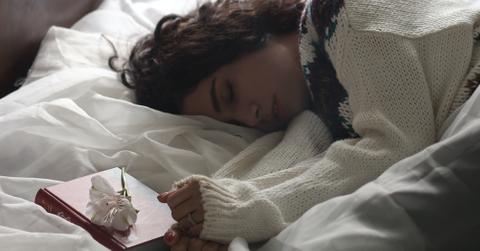
Does The Early Bird Really Get The Worm? Expert Say To 'Listen To Your Body' & Identify Your Chronotypes
You might have heard that early risers — or larks, as scientists dub them — are happier than night owls. Some folks even go so far as to say that larks are more successful than owls. "The early bird gets the worm," they quip, but is this actually true?
Your natural sleep and wake times are known as your chronotype, which is "a person’s circadian typology or the individual differences in activity and alertness in the morning and evening," says health writer Sara Lindberg.
Scientists typically divide chronotypes into three categories — morning types, evening types and neither — or they use bear, wolf, lion and dolphin to describe people's sleeping habits.

Bears, whose sleep and wake cycles follow the movement of the sun, are the most common chronotype. Wolves have trouble waking up in the mornings and are more productive in the evenings, while lions are the opposite. Dolphins don't keep to any one sleep cycle, and they are easily wakened.
If there is so much variation in sleep/wake cycles between people, why do early risers get lauded? One reason is that "many studies have indeed shown an association between being a morning person and greater happiness," explains cognitive neuroscientist Christian Jarrett.
Jarrett also cites studies which have shown that owls are more likely to "experience symptoms of depression, seasonal affective disorder and substance abuse problems."
While these studies make it sound like being a lark is better for your overall well-being, that may not always be the case. "But to measure cause and effect ... you must ensure that a simple correlation, however tempting it may be, is not mistaken for a cause," warns astrophysicist Neil deGrasse Tyson.
As Jarrett says, the happiness difference between larks and owls "might be at least partly explained by people who are owls tending to have less sleep or more sleep problems – rather than there being something advantageous about being a lark per se."
Most jobs force everyone to get up early, so if you are naturally an owl, this could make you more anxious and depressed — and making people be productive at the same time every day is not actually in line with human physiology. "Since back in our caveman days, we’ve needed a range of chronotypes to ensure our survival," says clinical psychologist Dr. Michael Breus.
Since your chronotype isn't necessarily good or bad, why does it matter? "Your chronotype influences more than just sleep," says Dr. Breus, adding that it also plays a role in your "health, sleep, food, work, money, fun, relationships, fitness and creativity."
To discover your chronotype, you can read Dr. Breus's book, or take an online test like this one.
Now that you know your chronotype is hardwired to your biology, what are some ways you can embrace it? One thing you can do is go to bed when you feel sleepy, not at some arbitrary bedtime. "If night owls try to go to bed earlier, they may toss and turn for hours before falling asleep," explains health writer Marygrace Taylor. "Conversely, early risers shouldn’t try to stay awake too late."

When you know your chronotype, you can use that knowledge to get ahead of the game — if you are a wolf, do your work in the evening, and if you are a lion, go to bed early and work first thing in the morning. “If people are left to their naturally preferred times, they feel much better. They say that they are much more productive. The mental capacity they have is much broader," says Oxford University biologist Katharina Wulff.
Wulff also warns against forcing people to work too far outside of their natural rhythms — night owls, for example, when woken too early, are still producing melatonin. "That can have lots of negative physiological consequences," she explains. The lesson? Changing your chronotype can actually be harmful to your health.
In the end, the best thing you can do for your health and well-being is to embrace who you are. "Listen to your body, because your body is listening to you," says Dr. Phil.
Whether you are an owl, a lark, a dolphin or a bear, your body is an incredible machine — and with the right care, it will thrive.
